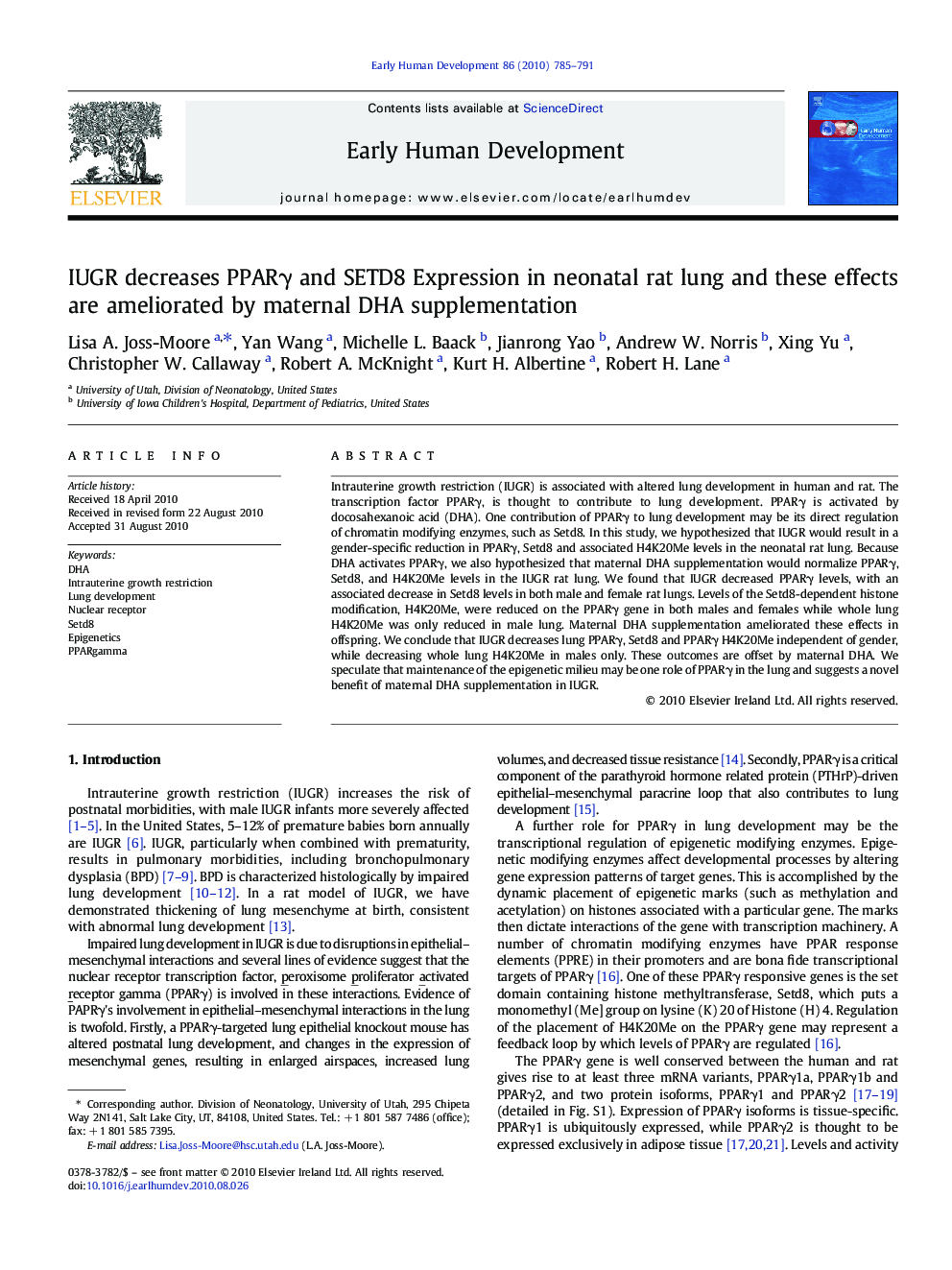| Article ID | Journal | Published Year | Pages | File Type |
|---|---|---|---|---|
| 3917556 | Early Human Development | 2010 | 7 Pages |
Intrauterine growth restriction (IUGR) is associated with altered lung development in human and rat. The transcription factor PPARγ, is thought to contribute to lung development. PPARγ is activated by docosahexanoic acid (DHA). One contribution of PPARγ to lung development may be its direct regulation of chromatin modifying enzymes, such as Setd8. In this study, we hypothesized that IUGR would result in a gender-specific reduction in PPARγ, Setd8 and associated H4K20Me levels in the neonatal rat lung. Because DHA activates PPARγ, we also hypothesized that maternal DHA supplementation would normalize PPARγ, Setd8, and H4K20Me levels in the IUGR rat lung. We found that IUGR decreased PPARγ levels, with an associated decrease in Setd8 levels in both male and female rat lungs. Levels of the Setd8-dependent histone modification, H4K20Me, were reduced on the PPARγ gene in both males and females while whole lung H4K20Me was only reduced in male lung. Maternal DHA supplementation ameliorated these effects in offspring. We conclude that IUGR decreases lung PPARγ, Setd8 and PPARγ H4K20Me independent of gender, while decreasing whole lung H4K20Me in males only. These outcomes are offset by maternal DHA. We speculate that maintenance of the epigenetic milieu may be one role of PPARγ in the lung and suggests a novel benefit of maternal DHA supplementation in IUGR.
